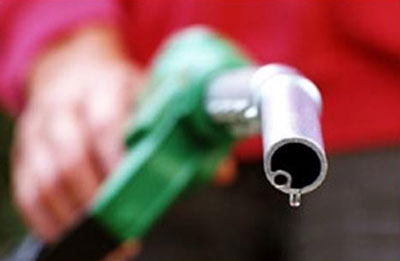
Opec to keep output target unchanged
Vienna, June 1, 2013
Organization of the Petroleum Exporting Countries (Opec) oil ministers agreed at their meeting to keep the group's oil output target unchanged for the rest of this year, a delegate at the meeting said.
The group will meet again on December 4, the delegate added.
Opec had been widely expected to keep the 30 million barrels per day target in place after oil ministers said ahead of the meeting that there was no need for change.
The Brent crude oil price at close to $100 a barrel on Friday is at Opec's preferred level to satisfy both producers and consuming countries.
Saudi Arabia's Oil Minister Ali al-Naimi set the stage for a swift and easy deal, saying world oil markets were in "good shape" and balanced.
Opec meeting was content to simply agree, as expected, to retain the group's 30 million barrels per day (bpd) output target through the rest of the year.
Its halcyon days of high prices and high production may be drawing to a close as soaring US output opens a new era for world oil markets, said experts.
After a comfortable ride since the 2008 price crash and record revenue of $1 trillion last year, it may have to be more pro-active on output policy.
The rise of US shale oil and slack demand will eventually force Opec either to support oil at $100 a barrel by cutting output - offering higher price support to rival producers - or protect market share by keeping the taps open and allowing prices to fall, they stated.
Oil is just above the $100 level favoured by the group that pumps a third of the world's oil. Opec's leading producer Saudi Arabia says the world oil market is in "good shape".
That's not the case for Opec's customers. With Europe fighting a stubborn economic downturn and recovery weak in many other parts of the globe, most governments consider oil pricey, as do consumers at the petrol stations.
But Opec secretary general Abdulla El Badri said much of the end price was due to add-ons beyond producers' control.
"'You fill your tank with cost of oil plus taxes," he said. "If governments want to.... do something to the price, they should reduce their taxes."
For now, maybe. But Opec has little room to pump more due to the US oil boom that has shifted the existing competition for marketshare once and for all to Asia and intensified a rivalry between Opec's top two producers Saudi Arabia and Iraq there.
Core Gulf producers think Opec will still be able to pump at least 30 million bpd, provided US shale grows at a moderate pace. While that does not leave much room for growth, it implies that Opec will not need to scale back significantly.
"This is not the first time new sources of oil are discovered, don't forget history," said the influential Saudi Oil Minister Ali Al Naimi.
"There was oil from the North Sea and Brazil, so why is there so much talk about shale oil now?"
There has not been such a surge in flows from outside Opec in decades and that has rung the alarm with some members - particularly Nigeria and Algeria - that feel squeezed.
"The rapid ramp up in US shale bears a striking resemblance to the situation in the early 1980s when North Sea oil production from the UK and Norway was rising very quickly," said Neil Atkinson, director of energy research at Datamonitor.
"This presented Opec with an enormous challenge because at the time demand growth was very weak. Nobody's saying that will happen again, but all the ingredients in that brew are starting to come into place," he added.-Reuters







